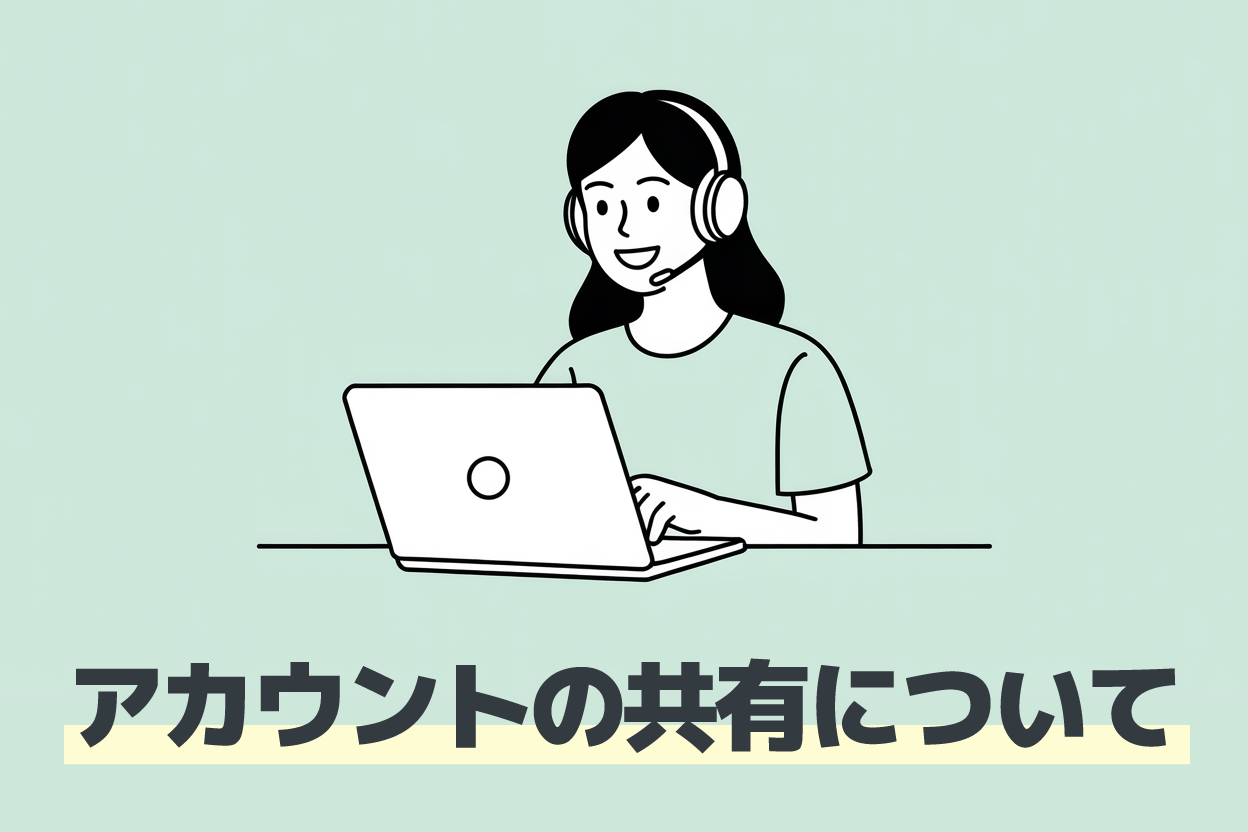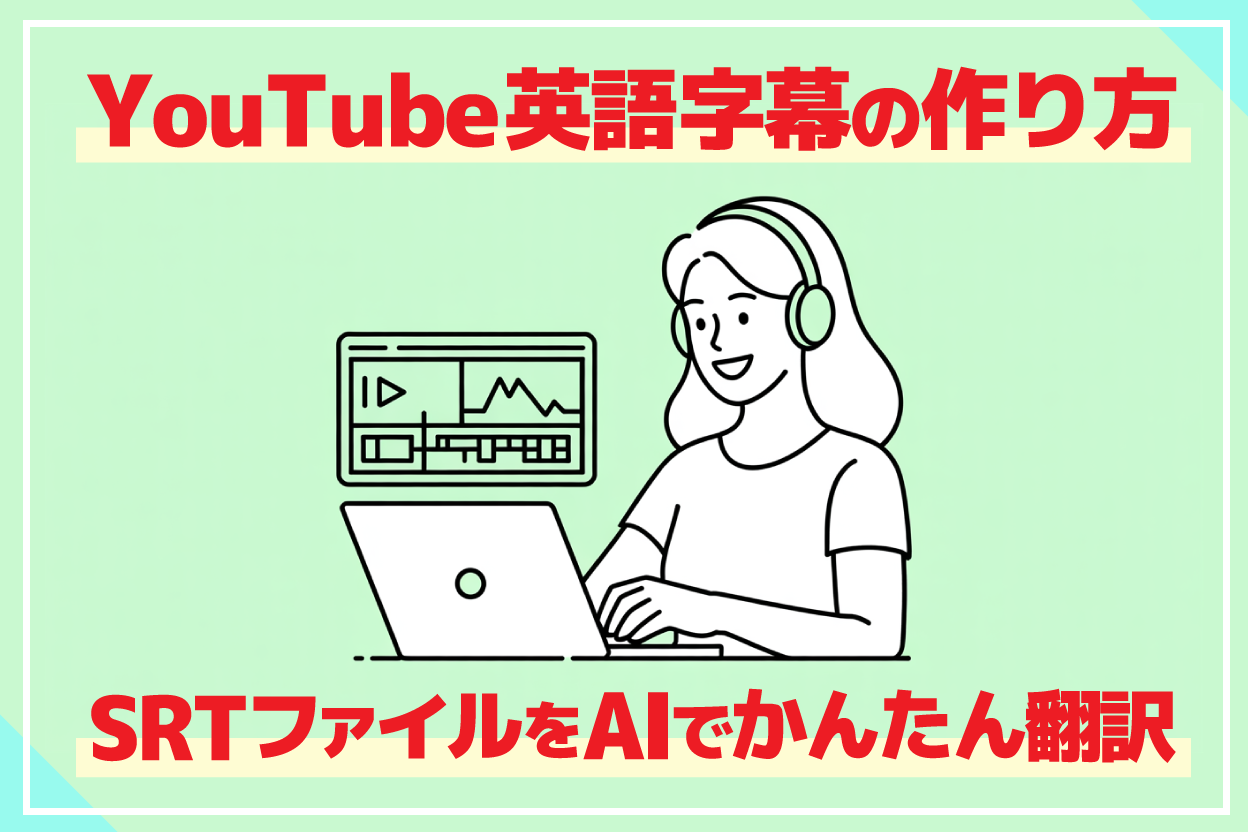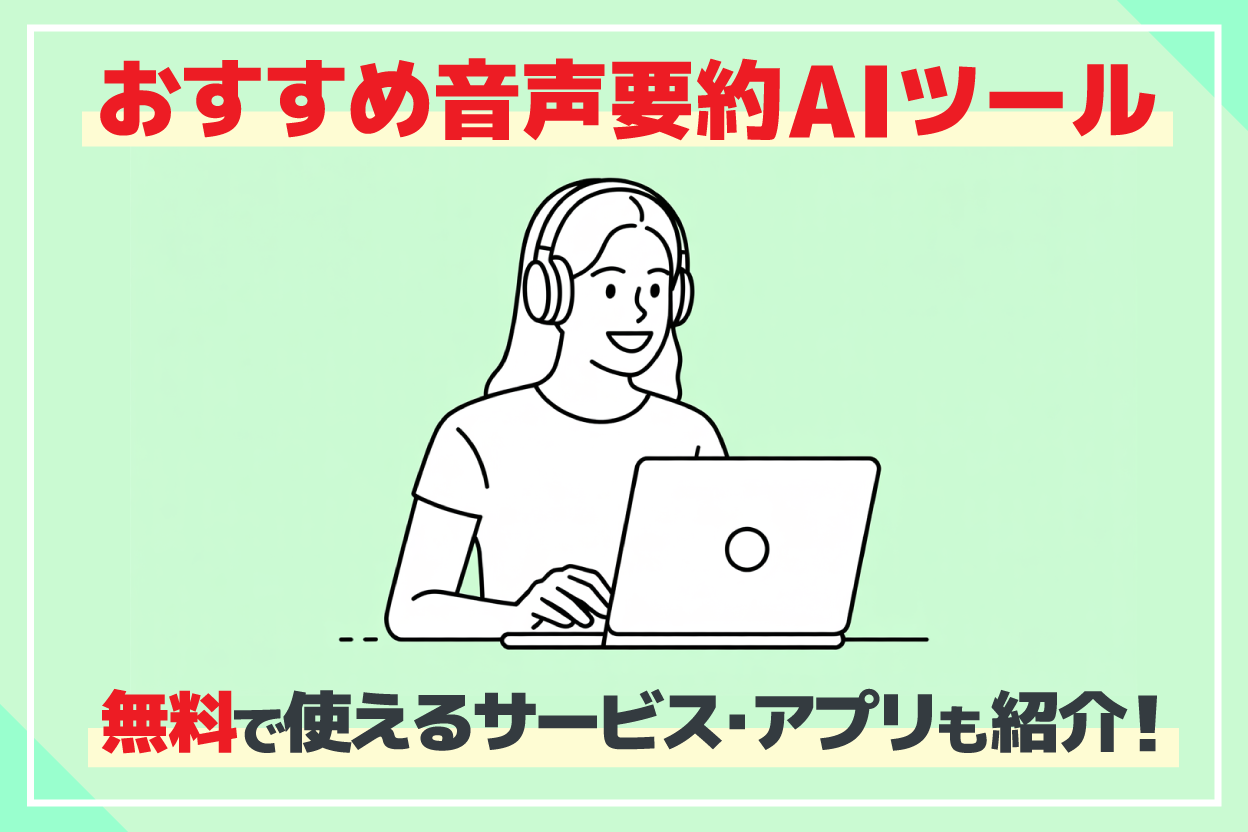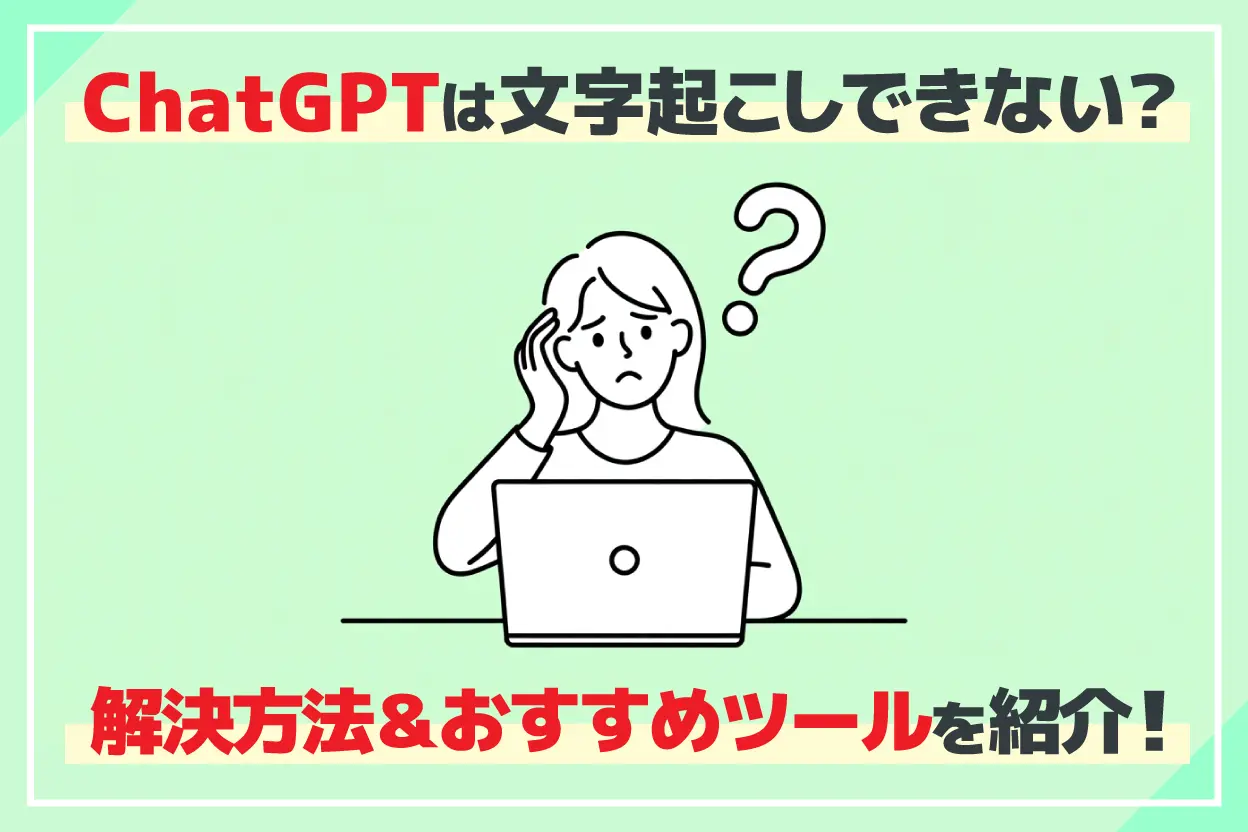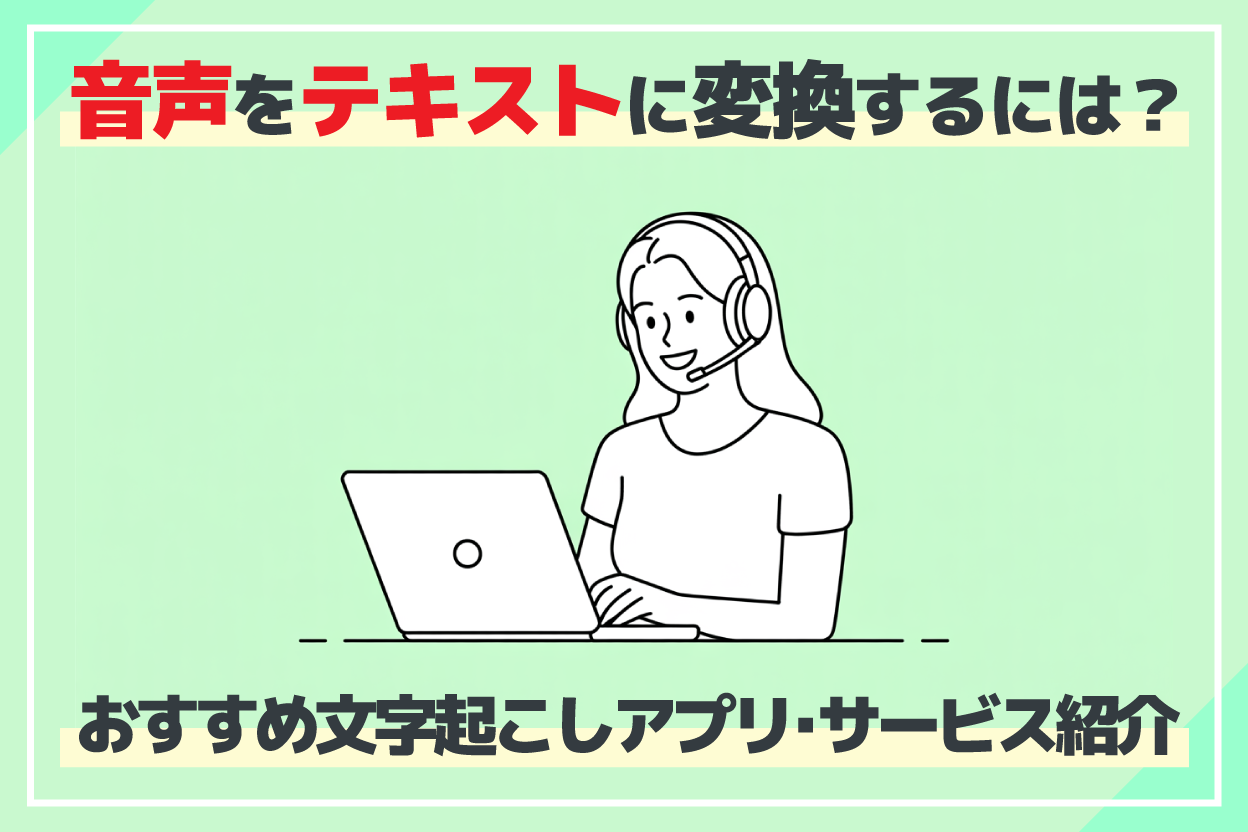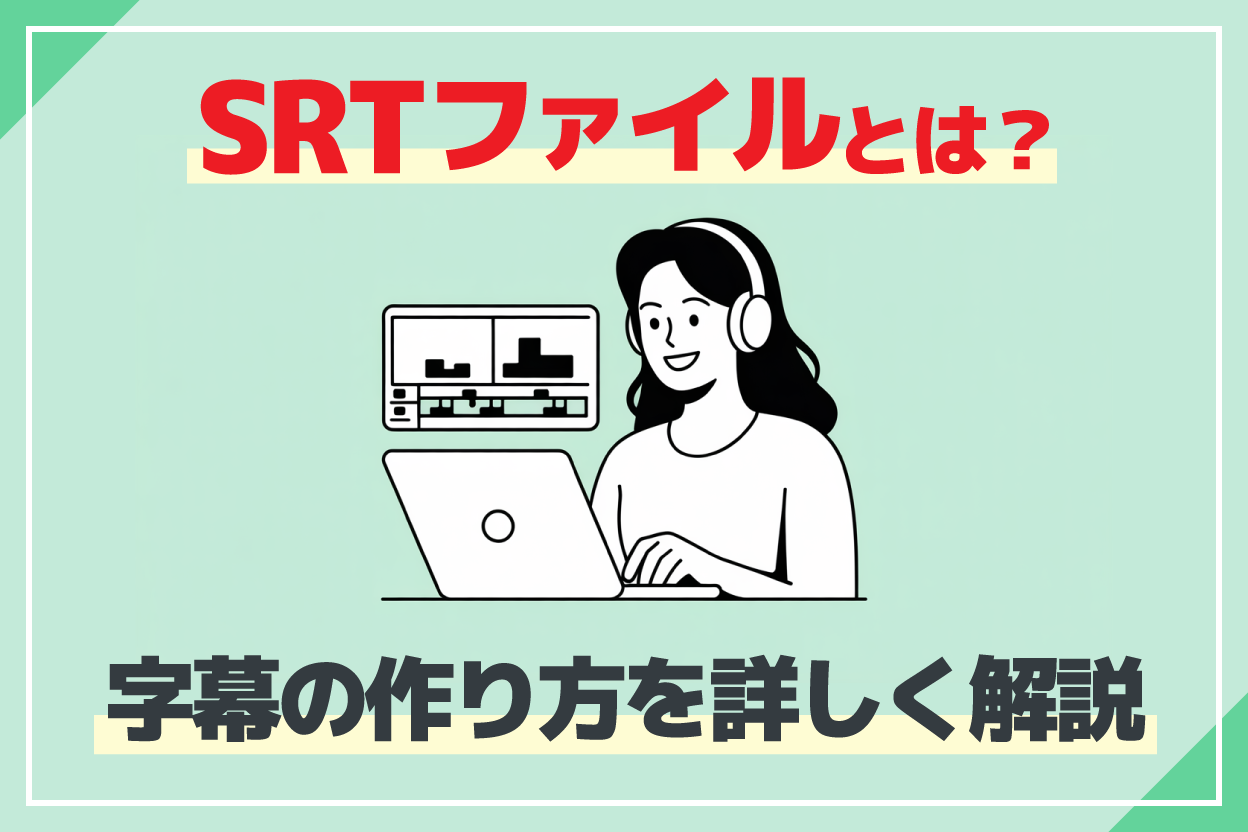Translate YouTube Videos Without Subtitles Using Chrome Live Caption
June 8, 2025


When watching YouTube videos, the caption translation feature is incredibly useful.
YouTube has a feature that automatically generates captions from audio, and it also allows for caption translation.
However, there are many YouTube videos that lack captions, making translation unavailable.
In such cases, it's highly recommended to use Google Chrome's Live Caption feature!
Google Chrome comes with a built-in feature that transcribes the content of playing videos and generates automatic captions. This means you can watch YouTube videos that don't have captions by creating and translating them as you go.
This article will explain in detail how to use Google Chrome's Live Caption and translation features.
If you're struggling to watch videos in foreign languages like English, why not try transcribing and translating them with Google Chrome using this article as a guide?
For Caption Transcription, Use 'Mojiokoshi-san'
If you're creating captions for videos, 'Mojiokoshi-san' is also highly recommended!
'Mojiokoshi-san' is an automatic transcription service that uses the latest AI.
It supports exporting SRT files, which are convenient for adding captions during video production.
If you're looking for a way to transcribe videos, why not try 'Mojiokoshi-san' for free?
Translate Videos with Google Chrome's Live Caption Feature
Video platforms like YouTube have automatic captioning and translation features, but they aren't available for all videos.
In such cases, it's recommended to use the Live Caption and translation features built into Google Chrome.
What is YouTube's Caption Feature?
YouTube offers both a caption feature and a translation feature.
The caption feature displays captions on the video.
You can enable it by clicking "Captions" in the bottom right corner of the video.

Captions include those set by the video creator and automatic captions
The captions that can be displayed using YouTube's caption feature include:
- Captions manually set by the video creator
- Captions automatically generated by AI
Manual captioning is very time-consuming, so for most videos on YouTube, AI-generated automatic captions are used.
What is YouTube's Automatic Translation Feature?
YouTube can automatically translate video captions into other languages.
YouTube's automatic translation feature can be used with both manually set captions by the video creator and AI-generated automatic captions.
How to Use the Automatic Translation Feature
To translate captions, with captions displayed, click on the settings icon (gear icon) in the bottom right corner of the video.

Displayed
From the displayed menu, click "Subtitles."

After clicking "Subtitles," from the menu that appears, click "Auto-translate."

After clicking "Auto-translate," from the menu that appears, select the target language for translation.
 For example, Japanese is selected.
For example, Japanese is selected.

*The target language may automatically be set to the user's preferred language.
You have now successfully auto-translated the YouTube subtitles.

Some Videos May Not Display Auto-Generated Subtitles
However, many videos on YouTube do not have auto-generated subtitles.
For example, the video in this image, uploaded by YouTube's official channel, does not allow the use of subtitles.

Since there are no original subtitles, you cannot auto-translate them either.
There are two reasons why auto-generated subtitles might not be available:
1. The Video Creator Has Not Configured Necessary Settings
To generate auto-subtitles for a YouTube video, two settings are required:
- Setting the language used in the video
- Allowing auto-subtitle generation for the video
If the video creator has not performed these settings, auto-subtitles cannot be displayed or translated.
2. Older Videos
Older videos uploaded before YouTube had an auto-subtitle featuredo not have the necessary settings for auto-subtitle generation.
To display auto-subtitles for older videos, the video creator needs to configure the auto-subtitle generation settings from the YouTube Studio dashboard.
Once the video creator has set up the subtitles, even older videos can utilize auto-subtitles.
Google Chrome's Features Enable Auto-Subtitles and Auto-Translation
It's very inconvenient when videos lack auto-subtitles, as you can't auto-translate and watch them.
But don't worry!
By using the auto-subtitle feature built into Google Chrome, you can generate and auto-translate video subtitles for viewing!
What's more, you can use auto-subtitles on video sites other than YouTube, so with Google Chrome's features, you can translate and watch content on video sites that don't have their own subtitle functions.
How to Use Google Chrome's Auto-Subtitle and Auto-Translation Features

This section explains how to generate and translate auto-subtitles using Google Chrome.
1. Open Settings
Click the vertical "..." icon in the top right corner of Google Chrome.

click" class="img-fluid" src="https://storage.googleapis.com/mojiokoshi3/post/image/20240722chrome-jimaku-howto009.jpg" />
Click "Settings" at the bottom of the menu that opens.

2. Open "Accessibility"
From the left-hand menu on the Google Chrome settings screen, click "Accessibility".

"Accessibility" is now open.

3. Turn on Live Caption
Turn "Live Caption" ON, which is at the top of "Accessibility".

Then, the download of speech recognition files will begin.

(The file being downloaded at this time is for English speech recognition.)
Once "Speech files downloaded" appears, the download of the English speech recognition file is complete.

Now, Google Chrome can use live captions and automatic translation for English videos.
You can also add languages
If you want to transcribe and create live captions for other languages, click "Add language".

Select the language you want to add and click "Add". The speech recognition file will be downloaded just like for English.

4. Turn on "Live Translate"
Next, turn "Live Translate" ON, which is below "Live Caption".

When turned on, the target translation language is English, so set the target language to Japanese from the menu.

5. Play a video on a video site
Now, Google Chrome's live caption and automatic translation features are ready to use.
When you play a video in this state, captions will automatically appear.
As an example, let's display a YouTube video that doesn't have automatic captions.
As you can see, captions will appear overlaid on the Google Chrome screen.

Since the "Live Translate" feature is on, the video's content will be automatically translated.
The content is automatically translated into Japanese.You can also drag the caption window with your mouse to adjust its position.
This completes the process of using Google Chrome's automatic captioning and automatic translation features.
Captions can be displayed on video sites other than YouTube
By setting up automatic captions and translation features in Google Chrome, you can use captions and translations for videos on other sites as well.
For example, in this image, a video is playing on the BBC website in the UK, and automatically translated captions are displayed just like on YouTube.

How to add high-quality captions to YouTube videos?

YouTube videos can be translated into foreign languages by using the standard automatic captioning feature or by using Google Chrome's automatic captioning feature as explained this time.
However, for more accurate captions, it is recommended to manually set captions on YouTube.
Manually typing captions into YouTube can be very time-consuming, but by using an AI transcription service, you can easily add high-quality captions!
For video transcription, "Mojiokoshi-san" is recommended!
There is a recommended method for adding captions to YouTube videos.
That is the AI transcription service "Mojiokoshi-san".
"Mojiokoshi-san" is a web service that uses the latest AI to transcribe videos with high accuracy and quality.
Anyone can easily transcribe content by simply uploading video files.
While real-time automatic captions on YouTube and Google Chrome tend to have speech recognition errors, "Mojiokoshi-san" transcribes after uploading the file, allowing for higher accuracy.
By using the latest AI transcription engine "PerfectVoice", even long videos can be transcribed in just 10 minutes.
SRT format export for captions is possible
"Mojiokoshi-san" natively supports caption export.
It can save in the SRT format, which is the de facto standard for video captions, so you can easily add captions to your videos by importing them in the YouTube editing screen.
Of course, it also supports importing into video editing software like Adobe Premiere and DaVinci Resolve.
Would you like to try "Mojiokoshi-san" for free?
What's more, "Mojiokoshi-san" allows free transcription of files up to 1 minute without registration or login!
If you are looking for a way to transcribe videos, why not try "Mojiokoshi-san" from here?
How to add captions to YouTube with "Mojiokoshi-san"
1. Transcribe captions with "Mojiokoshi-san"

With "Mojiokoshi-san", YouTube's
To add subtitles to your video, first, upload the same video file that you uploaded to YouTube.Once you open "Mojiokoshi-san" from this top page:
- Click "Select"
- Drag & drop the file
Choose one of these methods to select your file.

Clicking the "Transcribe" button will automatically start the upload.
Once the upload is complete, transcription will begin automatically.

Transcription, even for long files, is usually completed in about 10 minutes.
Once transcription is finished, the transcription results will be displayed automatically.

*If you close the browser tab after the upload is complete, you can also view the results from "History" in the menu.
2. Download the Subtitle File
On the transcription results screen, click the "Subtitle File" button to download the subtitle file.

3. Upload Subtitles to YouTube
From the YouTube Studio dashboard, open "Video details" for the video you want to add subtitles to.
Click "Subtitles" on the right side.

The subtitle management screen will open.
On this screen, click "Upload file".

Since the subtitles generated by "Mojiokoshi-san" include timecodes, select "With timing".

Clicking "Continue" will open the upload screen, so select and upload the SRT file.

Once uploaded, the subtitles were automatically loaded like this.

Click "Done" to save the subtitles.

This completes the process of adding subtitles to your YouTube video using "Mojiokoshi-san".
Using "Mojiokoshi-san" allows you to easily create higher-quality subtitles than YouTube's or Google Chrome's automatic captions!
High-quality subtitles result in more natural translated text, which can help you attract more international viewers.
Why not try adding high-quality subtitles to your YouTube videos with "Mojiokoshi-san"?
■ AI transcription service "Mr. Transscription"
"Mr. Transcription" is an online transcription tool that can be used from zero initial cost and 1,000 yen per month (* free version available).
- Supports more than 20 file formats such as audio, video, and images
- Can be used from both PC and smartphone
- Supports technical terms such as medical care, IT, and long-term care
- Supports creation of subtitle files and speaker separation
- Supports transcription in approximately 100 languages including English, Chinese, Japanese, Korean, German, French, Italian, etc.
To use it, just upload the audio file from the site. Transcription text is available in seconds to tens of minutes.
You can use it for free if you transcribe it for up to 10 minutes, so please try it once.
Email: mojiokoshi3.com@gmail.com
Transcription for audio / video / image transcription. It is a transcription service that anyone can use for free without installation.
- What is Mr. Transcription?
- Transcript images, sounds, and videos with Mr. Transcription
- Free registration
- Rate plan
- manual

